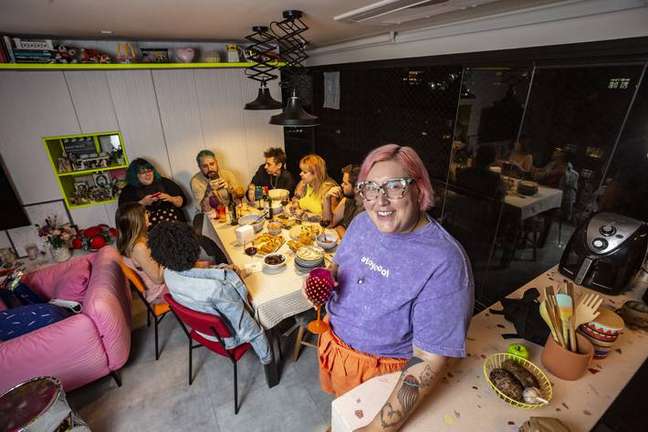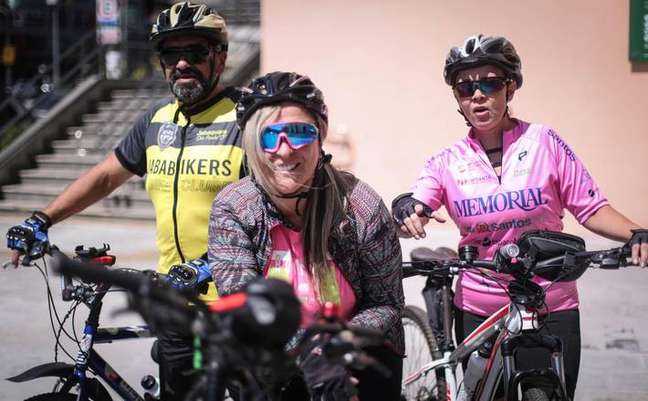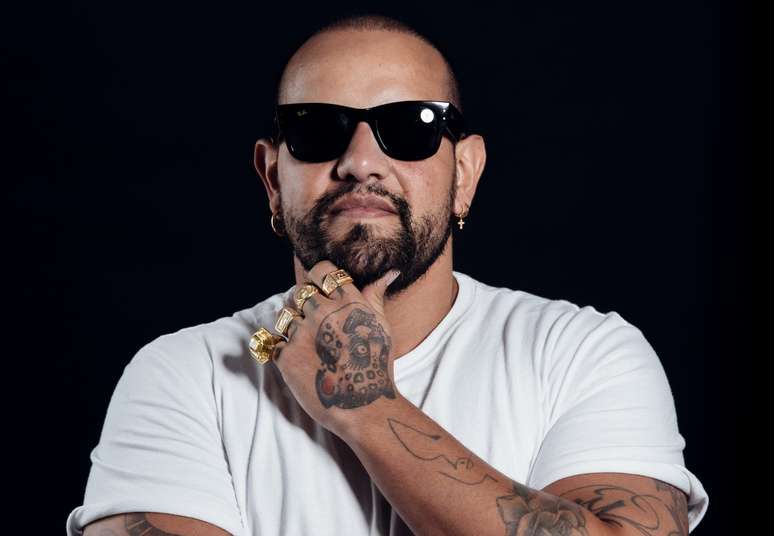Bonding in adult life is more challenging, but there are ways to improve sociability; see expert advice
In childhood and adolescence, it seemed easy to do friendships. After all, the subjects of interest and the circles frequented were practically the same. In adult life, however, things change a bit. It seems that the schedule is always full of other commitments and that there is never time to think about making new friends. It is as if establishing these bonds after 30 years is no longer as simple as it seemed.
And there are several reasons for this feeling. Ana Paula Vedovato, a psychologist at the Institute of Psychology at the University of São Paulo (USP), explains that this difficulty can be attributed to the increased resistance that life experience entails. “We become less willing to open ourselves to trusting what we don’t know and we start preferring what we are used to and that won’t surprise us,” she says.
According to her, this movement is the result of our experiences, but above all of the way we deal with them. “We are crossed by our traumatic experiences and many times we don’t even know how much they affect us. This puts us in a defensive position with respect to the other”, she evaluates. This resistance can determine the path each individual will take in the affective field and how open they will be to new connections.
Lack of self-knowledge can also make it difficult. “If we meet new people, the potential for friendship is given, but for this we need to know each other, know our tastes, what makes us good and what our limits are,” she defends. This is because, according to the psychologist, recognizing one’s interests is the first step in finding people who also identify with them. From identification arise the bonds that form more solid friendships. “But not everyone knows each other like that,” he reflects.
When the Internet brings people together
Graphic designer Mariana Nóbrega, 37, acknowledges these difficulties. “When you’re young, you just like the same band to consider someone your friend. But as an adult you become more demanding and withdrawn,” she says. Even so, she has met new friends and has seen that age is not a barrier to making friendships.
It was in a room circle – that social network that rocked at the beginning of 2021 – that Mariana met her new friends. “When I put in the question, there was a room going on with a few people and I only knew two,” she says. The goal was for her participants to imitate billionaire gurus, in the best Elon Musk style. “They asked me to talk and I joined in on the fun,” she recalls. There were days of good laughs, the likes of which she hadn’t had in a long time. “From that room they created a WhatsApp group with some people. And it is with them that I, by chance, made friends after the age of 30”, she says.

This group of 13 friends met just eight months after they met virtually. Before that, all conversations were on social media. That doesn’t mean, however, that it wasn’t a solid friendship. On the contrary. “We have an intimacy that it took me years to build with other friendships. We go to each other’s houses, we go out to lunch, we go to bars. Today, it’s a real-world friendship,” he says.
What changes after 30?
According to Ana Lúcia Pandini, psychologist and professor at the Universidade Presbyteriana Mackenzie, in addition to individual changes, there are changes in relationships after the age of 30. The idea that everything is forever, for example, ceases to be an absolute truth in adult life.
And this is something Mariana has noticed. “We know that nothing is forever and that nothing is as intense as it was in adolescence,” she says, that today she doesn’t worry so much about the need to have lifelong friendships. “As long as it’s legal for both parties, let it last. If it’s not, I have no problem ending a cycle, even if it’s not easy.”
The psychologist attributes this to the understanding that maturity can bring that ending a friendship is a normal process of human relationships. After the age of 30 it can be easier to understand that people change and friendships change with them. And those relationships that used to make sense may no longer make sense.
The types of friendships and how they are built will also change. During childhood and adolescence, friendships have a fusion characteristic and are usually formed by the presence of similar characteristics. “Children, for example, don’t see differences, but they identify by playing games together,” she explains.
Teen friendship usually works by tribe. “They group together with people who listen to the same kind of music, go to the same parties, wear the same clothes. What matters to teenagers is that they are different from their parents, but their friends are all the same,” she says. But since the age of 30, Ana Lúcia believes that there is a change in the quality of friendships. “They change for the better, because they’re not friends anymore in this fusion model, where people have to be equals to become friends,” she says.
Friends may also have different lifestyles, but have similar individual values. It is as if in adult life it was more important to share the same values than the same tastes. “Adult stage friendships tend to be the ones with more freedom, autonomy and adding more new things to life,” she assesses.
Even friendships born in childhood or in adolescence they will have to go through this transformation process, in which they will understand that it is possible to have a relationship with the differences between people. Therefore, the difference that perhaps disturbed a friendship in adolescence is usually not a problem in adult life, even if common characteristics continue to be essential for establishing bonds.
The power of friendships
That wasn’t a problem for Lola Ribera either, who, at 54, decided it was time to make new friends. The decision, however, came after some resistance. “It seemed difficult to fit new friends into my life after 50. I already had a whole life, I had already built a family,” she says. But the feeling of being alone in her world made her change her mind.
“I was 50 years old, I felt very alone and with few friends,” she recalls, who chose to find new friends through cycling, a sport she already practiced. “I started looking for cycling groups on Facebook, found one and introduced myself,” she says. It was thanks to the group which has seen his circle of friends grow. “Thanks to cycling I have made three great friends. They are people who have become part of my life, even outside of cycling. They are people with whom I have created a relationship of love”.

He sees many benefits in these new friendships. “They helped me get out of depression. Today we go to each other’s houses, drink beer, eat something, talk and laugh. All this makes me feel very good,” she explains.
In fact, friendships can add a lot to people’s lives. Ana Lúcia warns of the important role they play in mental health and well-being. “Friends act as a support network,” she says. “It’s a form of emotional support in a time of need, but it’s also practical support that can help with day-to-day activities.”
Sharing life with friends also involves a feeling of protection. It is as if, within friendship relationships, it were possible to build an environment of security and trust, which facilitates the creation of bonds. The psychologist believes that it is precisely the lack of this sense of security that makes it difficult for some people to form such strong bonds with family members. “That’s why we say friends are the family we choose.”
Furthermore, friends also provide moments of leisure and entertainment and allow for greater self-knowledge of people. Ana Lúcia explains that, in this sense, friendship is a two-way street. “The other can be a role model for the aspects of your personality that you have yet to develop, and you can be a role model for the traits that the other has to develop as well.”
How to be more open to new friendships?
Elaine Vasconcelos, 74, was open to making new friends. And she decided to do it by traveling the world. She collects a few passports and many stamps from different countries, but the most important thing, she says, are the friendships she made during these experiences. Isabel Penteado is one of them. “I met her on a trip to Atacama and then we made other trips together. The last one was in Armenia. We talk every day and I have a lot of affection for her”, she says.
He also met Paulo and Rosana, a couple of friends he made during his trip to Vietnam. “We’ve done many trips together since, the latest being to Australia and New Zealand,” she recalls. And Elaine already has plans for next year: she will go to Holland with another friend, Selma, whom she also met on one of her many trips. “They are very dear people and very important friendships to me.”
This is what psychologist Ana Lúcia calls “being open to the world”. “It means maintaining the will to discover new places, to do different cultural activities and not to give up free time. A person who isolates himself from this risks encountering greater difficulties in making new friends”, she explains. This is an important path for those who want to make new friends after the age of 30, but it’s not the only one. Check out more ways to find friends in old age.
- Find people online. “On the internet you can find groups of the most varied subjects”, says the psychologist, who guarantees that these groups have the power to form deep and true relationships between people. There are also apps for making new friends, such as Slowly, which connects people from different countries.
- Know yourself. The psychologist argues that self-knowledge is essential for establishing friendly relationships. “When you know yourself, you can have more clarity about who the people are adding to your life,” explains Ana Lúcia. Friendship building itself helps in self-knowledge. “By looking at the similarities and differences in a friendship, you get to know each other better, just as you know each other better.”
- Give colleagues a chance. The work environment tends to occupy a large part of the routine of people after the age of 30. Location can be used to strengthen connections.
- Cultivate some hobbies. You hobby, especially if carried out in a group, can help in the formation of new friendships. It could be a painting group, book club, or exercise class. The key is that they are activities you enjoy doing. “In this process, you’re likely to find people with the same interests as you,” she explains.
- Avoid accusations. Making friends is not a competition, but a natural process that occurs through the identification of similarities and the acceptance of individualities. It is important to respect the time in which relationships develop.
+The best content in your email for free. Choose your favorite Terra newsletter. Click here!
Source: Terra
Ben Stock is a lifestyle journalist and author at Gossipify. He writes about topics such as health, wellness, travel, food and home decor. He provides practical advice and inspiration to improve well-being, keeps readers up to date with latest lifestyle news and trends, known for his engaging writing style, in-depth analysis and unique perspectives.







